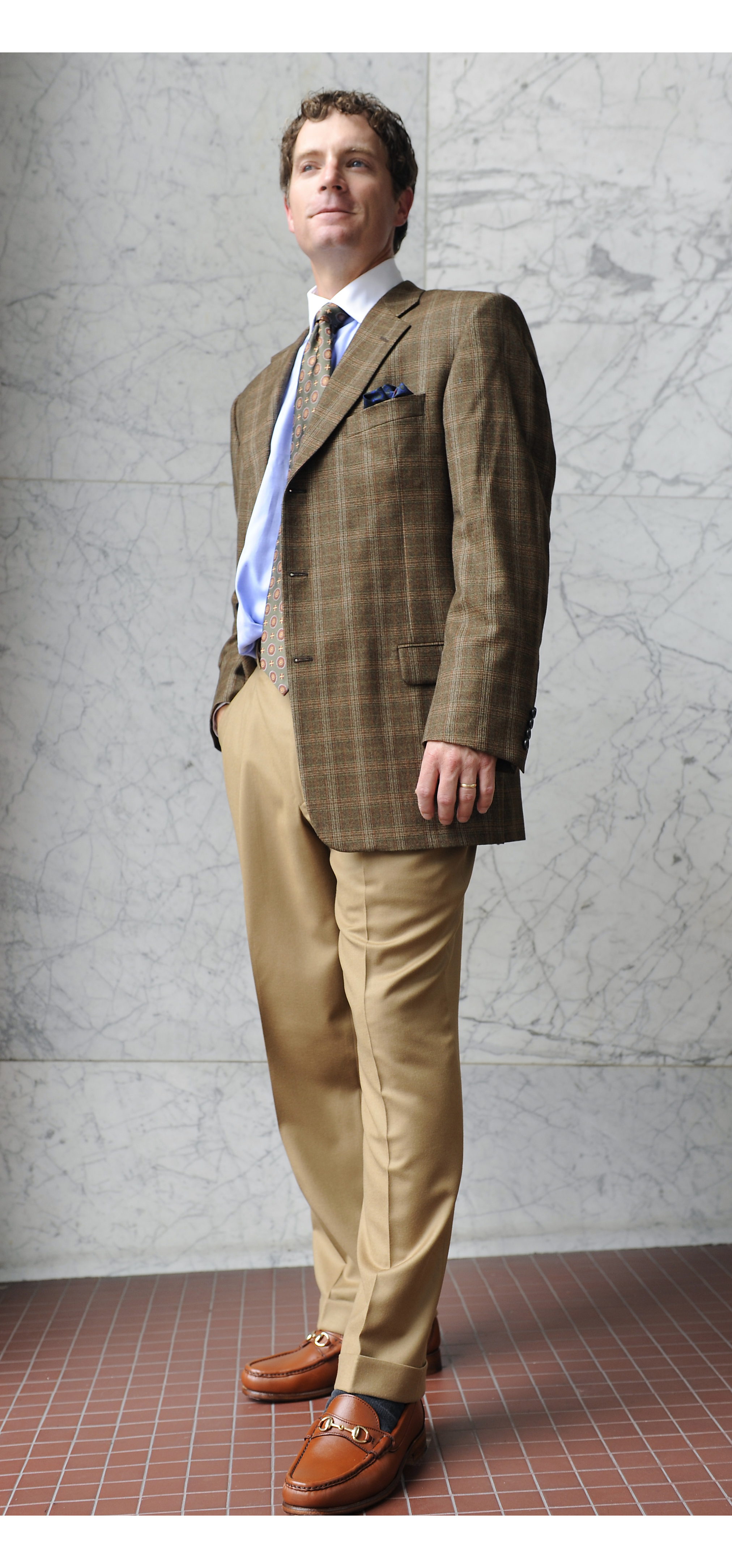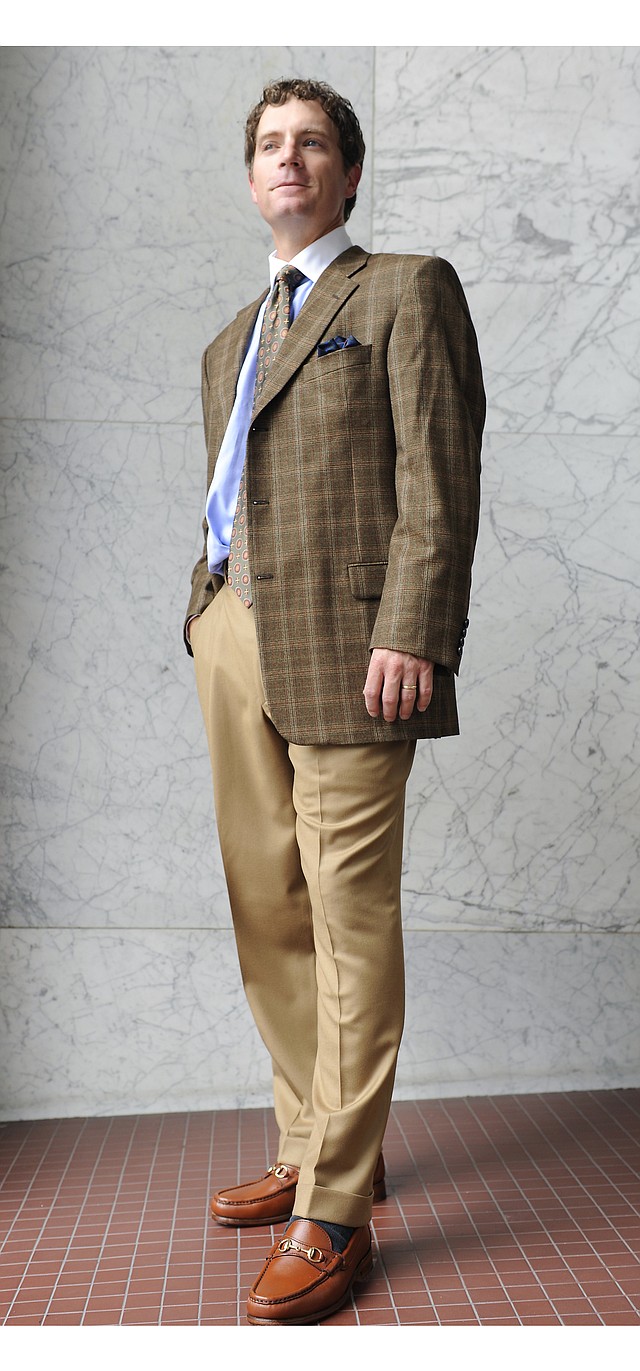Chattanooga retailer pushes garments made here
Friday, January 1, 1904
 Bo Chamberlain models clothing manufactured in the United States, including a Southwick sport coat, $695; Hertling pants, $195; Gitman Brothers dress shirt, $150; Donahue cuff links, $295; Robert Talbott tie, $85; W. Kleinberg alligator belt, $350, and Alden shoes, $295. Fashions courtesy of Bruce Baird & Co.
Bo Chamberlain models clothing manufactured in the United States, including a Southwick sport coat, $695; Hertling pants, $195; Gitman Brothers dress shirt, $150; Donahue cuff links, $295; Robert Talbott tie, $85; W. Kleinberg alligator belt, $350, and Alden shoes, $295. Fashions courtesy of Bruce Baird & Co.Bruce Baird is on a mission to encourage customers to buy clothes made in the United States.
Baird has been on this quest since he opened his upscale clothier, Bruce Baird & Co., 23 years ago in downtown Chattanooga. In recent years, though, it hasn't been easy to keep his racks stocked with domestic clothes. American clothing companies are nearly extinct, he said.
The problem, he said, is that the cost of skilled labor, including high health-insurance rates, has caused manufacturers to shut down or leave the county.
"Of all times to support America, it's now," Baird said. "With the economy down and so many people out of work, we need to support American-made goods. I heard on an ABC News report recently that if every American spent an extra $3.33 on something made in America, it would create almost 10,000 new jobs in the United States."
Baird said he is committed to selling American-made products not only because of the down economy but because production standards are high.
"When I first opened, finding merchandise made in America wasn't an issue because there were at least 300 major clothing manufacturers in our country. Now there are roughly eight," he said.
"People in America started shopping elsewhere for cheaper products, and the majority of these products were made offshore. The bad part is that many products are inconsistent and do not hold up to the standards of products made in America," Baird said.
Some American-made products, particularly clothing, are more costly than those made in other countries, Baird said. "In this economy, people aren't willing to pay for quality. But in some cases, people just don't pay attention to labels."
Virginia Spangler Polley, of Chattanooga, said she doesn't limit herself to buying only American-made merchandise.
"I am a free-market person and buy well-made products that offer a good value," she said. "I try to encourage manufacturers that are competitive. If America can't make a product competitively, it should change its practices or switch to manufacturing something it can do well."
Some people are taking it a step further.
Maddie Kertay of Chattanooga said she has starting making her clothes.
"I have taken this in my own hands this year and am working on sewing all my own clothes," she said.
Still, finding fabric made in America is difficult.
"According to data from the 2010 Census, nearly 100 percent of all apparel Americans use is imported, up from nearly 57 percent in 2000," the ABC report noted.
"My goal tends more to the side of being self-sufficient in this age of crazy prices, so it is not so much about it being made here or there, it's about cultivating the ability not to be tied to the economic market of any country to the point where I would not be able to dress my family," Kertay said.
Mark Carter of Cleveland, Tenn., said finding clothing made in America is "a losing battle."
Baird admitted it's difficult, if not impossible, to stock a retail business with only American-made products.
"I'm a minority," he said of his stock that is roughly 70 percent made in America. "But I'm finding more and more that people really appreciate it. It is amazing to me how many people don't realize how much is not made in America. I tell people to look at labels of what they're wearing, what they're sitting on, etc., and it never fails that the majority of people are surprised to find out that most of it is not made in America."
